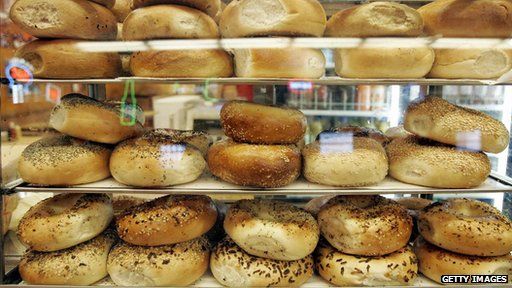Facebook 'like' adverts tested with VirtualBagel experiment
- Published

The BBC tested the effectiveness of Facebook advertising by starting a page for an imaginary business called VirtualBagel and placing adverts designed to get people to "like" it.
The BBC targeted the ads widely at users across the US, UK and a number of Middle Eastern and Asian countries.
Within 24 hours, VirtualBagel had acquired over 1,600 likes, despite the fact that the page offered no products and no interesting content.
Nearly all of the "likers" came from India, Egypt, Indonesia and the Philippines.
The statistics showed that the page was most popular in Cairo, with 75% of "likes" coming from 13 to 17-year-olds.
Some of those liking the page did not appear to be who they said they were.
One user, who called himself Ahmed Ronaldo, listed Real Madrid as his employer, and featured the footballer Cristiano Ronaldo as his profile picture.
Mr Ronaldo also likes more than 3,000 other pages.
Facebook's terms and conditions state that users must provide their real names.
Skewed results
Rory Cellan-Jones on his bagel experiment
What was striking was that hardly anyone from the US or the UK - two of the most valuable markets for advertisers - appeared to have clicked to like VirtualBagel.
When the advert was adjusted to target only the UK, the number of people liking the page dropped to a trickle and the click-through rate - one measure of effectiveness - fell to just 10% of the previous level.
Facebook claims lack of interest in a targeted market is often the result of poor targeting of adverts.
It said that only "a very small" percentage of users gave fake names, adding that it used automated systems to help track them down.
- Published13 July 2012
- Published13 July 2012
- Published13 July 2012